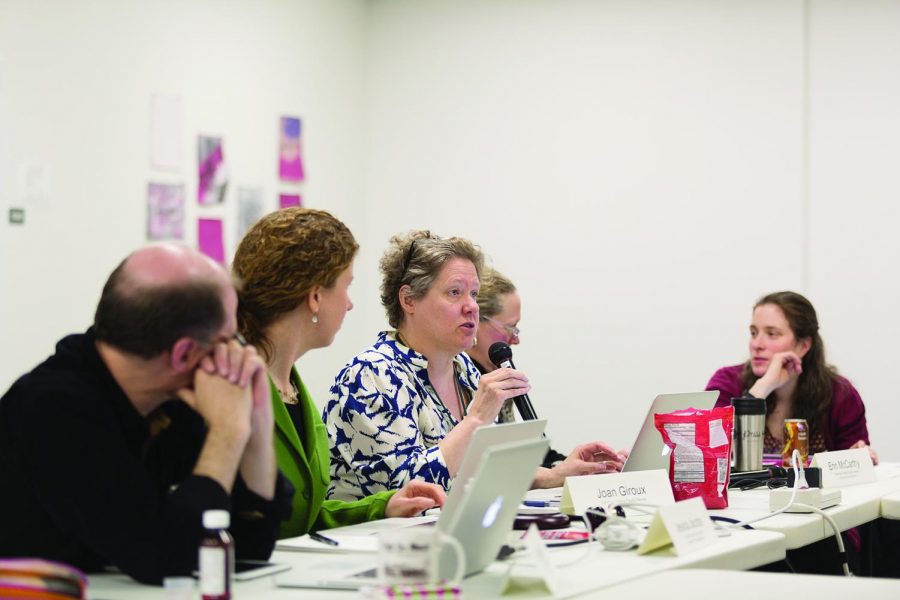Faculty Senate approves two new motions
The Faculty Senate discussed and approved two motions regarding summer graduate credit hours and the position of academic ombudsperson on April 8.
April 11, 2016
The Faculty Senate approved two motions at its April 8 meeting that would reduce the number of summer credits required for graduate students to be considered full-time students. The Senate also modified a position known as an academic ombudsperson that assists in fairly resolving faculty complaints.
Dawn Larsen, an associate professor in the Business & Entrepreneurship Department, said by reducing the number of credit hours from nine to five for full-time graduate students in the summer, more graduate students will be able to afford summer classes and enroll full-time because the designation will enable them to get financial aid.
Larsen said the Graduate Policy Council made the motion to help improve affordability because financial aid is not made easily available to students taking summer courses, and students have difficulty qualifying for it.
“This is a technicality, and this helps our students go full-time as it is required in many programs,” said Susan Imus, chair of the Creative Arts Therapies Department.
Larsen said Cynthia Grunden, assistant vice president of Student Financial Services, supported modifying the requirements. Larsen added that the number of credits for full-time graduate students in the Fall and Spring semesters will remain at nine credits.
Jeff Abell, interim chair of the Art & Art History Department, said Faculty Senate has always debated how many credit hours should be required of full-time graduate students.
“This simply clarifies all of [the confusion] so there is no longer a situation where a graduate student would be told ‘Yes, you have these required summer hours, but there is no way for you to qualify for financial aid,’” Abell said.
The motion from the Faculty Affairs Committee to approve changes to the description of the academic ombudsperson was needed to clarify the different practices and standards of the position, said Eric Scholl, associate chair of the Television Department.
“We took the things we felt were the deal breakers, that were absolutely essential, to be part of an ombudsperson, and we spelled them out,” Scholl said.
Abell said he thought the original version of the proposal passed by the Senate on May 5, 2015, was vague and he thinks this is a stronger and clearer proposal.
“This [proposal] seems much more specific and focused on turning it into an actual job description,” Abell said. “This resolves a number of the things that were left kind of ‘Well it could be this or that,’ in the original form.”
Scholl said he hopes to start the hiring process for the position soon.
The academic affairs committee also said it will review the Universal Learning Outcomes, which were released by the ULOs Committee on March 16, during its next committee meeting and will bring the proposal to motion during the next full senate meeting in May.
“We fully intend to process this and deliver it back to this body at our next meeting without any concern for substantial changes in the document,” said Alton Miller, associate professor in the Communication and Innovation Department.
Other concerns addressed during the meeting were the importance of the Senate’s involvement with the selection of the new vice president of Online Education and the need to continue to monitor the reviewing process of school deans every three years.








